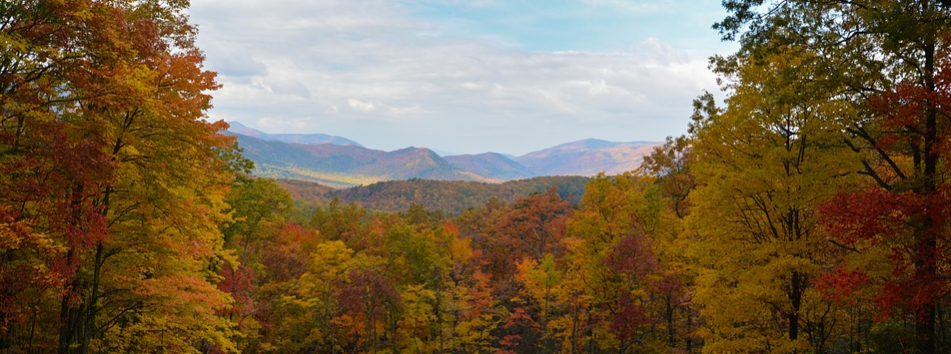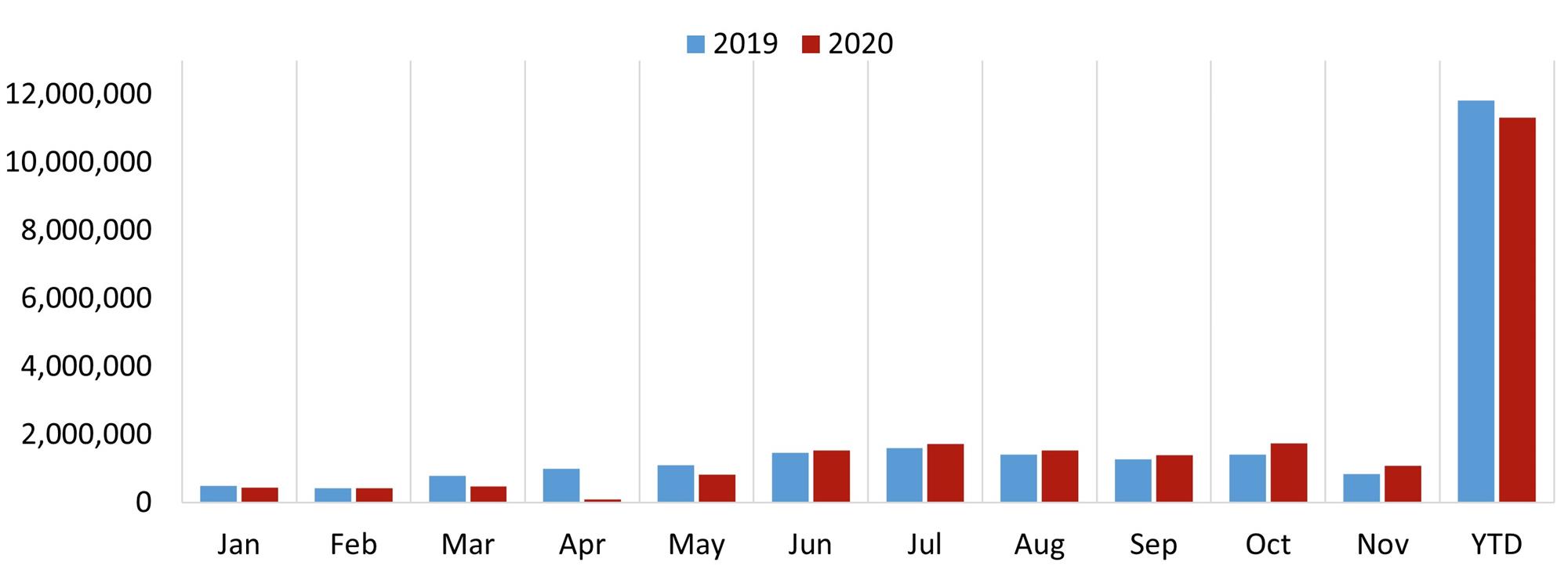
The COVID-19 pandemic impacted Americans and the rest of the world in a multitude of ways. None was more readily apparent though than the steep reduction in face-to-face interactions – whether through traveling or in the workplace. As many companies transitioned employees to a work-from-home setting, some permanently, many people's daily social interactions dropped precipitously. This was further compounded by the substantial restrictions on events, dining out, and travel. By May 2020, roughly two months into the pandemic, many Americans felt a need to escape and travel; with the warmer months approaching across the country, national parks became a refuge for people to leave the confines of their homes and seemingly stagnant new lifestyles. The Greater Gatlinburg market comprises Gatlinburg, as well as the nearby cities of Pigeon Forge and Sevierville. As a gateway to Great Smoky Mountains National Park and the birthplace of Dolly Parton, the area has for years been a major tourist destination. The area experienced reductions in demand in March and April, similar to the rest of the country. However, travel to the market began to surge in May, a trend that continued through the end of 2020.

Significant factors contributing to this recovery are summarized as follows:
- A trend towards outdoor recreation travel was realized across the United States during the warmer months of the pandemic, as civic leaders urged Americans to stay outside and to practice social distancing. This led to a surge in travel to areas synonymous with outdoor activities (click here for HVS’ insight on Wyoming and Montana).
- As such, many of the country’s parks experienced record-breaking visitation numbers. Great Smoky Mountains National Park has historically been the most visited national park, with 12.5 million recreational visits in 2019. Although overall numbers are down across all of the nations parks due to the pandemic, Great Smoky Mountains National Park noted monthly visitor numbers above 2019 numbers in the second half of 2020. For example, in November 2020 the park attracted 1,091,098 recreational visitors, while only 851,419 people visited in the same month the year prior – a 28% increase.

- Gatlinburg is located just a few hours’ drive from states like Virginia, The Carolinas, Kentucky, Georgia, and Alabama. The accessibility to travel to a comparatively pandemic-safe and exciting destination while avoiding commercial air travel has been a notable draw for visitors to the area. Moreover, the area capitalizes on its proximity to the Appalachian Mountains with dozens of attractions related to the recreational atmosphere and Appalachia, including Ober Gatlinburg, Gatlinburg Skylift Park, Anakeesta, and the Gatlinburg Mountain Coaster.
- Recent STR data has indicted a rate premium in the Gatlinburg lodging market, despite comparatively lower overall hotel occupancy levels from 2019. A record was set in October 2020, when ADR realized the highest monthly rate in the past decade. Occupancy in October also reached levels similar to previous years, almost 90%. However, October 2020 year-to-date occupancy was nearly 25% lower than year-to-date 2019 levels; despite this, ADR was 6.5% higher than in the same period in 2019, setting another record for the market. This premium in the market indicates that travelers to the area are not particularly price sensitive, a trend that is likely compounded by the abundance of Airbnb rentals, campgrounds, and other alternative (and generally more inexpensive) lodging facilities, which may appeal more to more price-sensitive travelers.
- The area began reducing COVID-19 restrictions earlier than other areas in the country. Although most events and conferences in the Gatlinburg area were canceled or postponed in 2020, capacity restrictions for dining and entertainment were lifted or reduced in the early summer. Most counties in Tennessee followed state guidance, which implemented the Tennessee Pledge, a set of voluntary guidelines for businesses and patrons to reduce the impact of the pandemic. Sevier County, which encompasses Sevierville, Pigeon Forge, and Gatlinburg, implemented an indoor mask mandate in July 2020, which was extended through the end of 2020. The comparably relaxed restrictions in the area further enticed visitors, especially those from nearby major metro areas, which generally had stricter guidelines and restrictions.
For more information, contact Marc Greeley in the Nashville office.
Sevier County’s COVID-19 Guideline Highlights (as of January 1, 2021)
Sevier County requires those over the age of 12 to wear a mask in indoor public spaces.
More information on the Tennessee Pledge can be found here.

This is a great read!